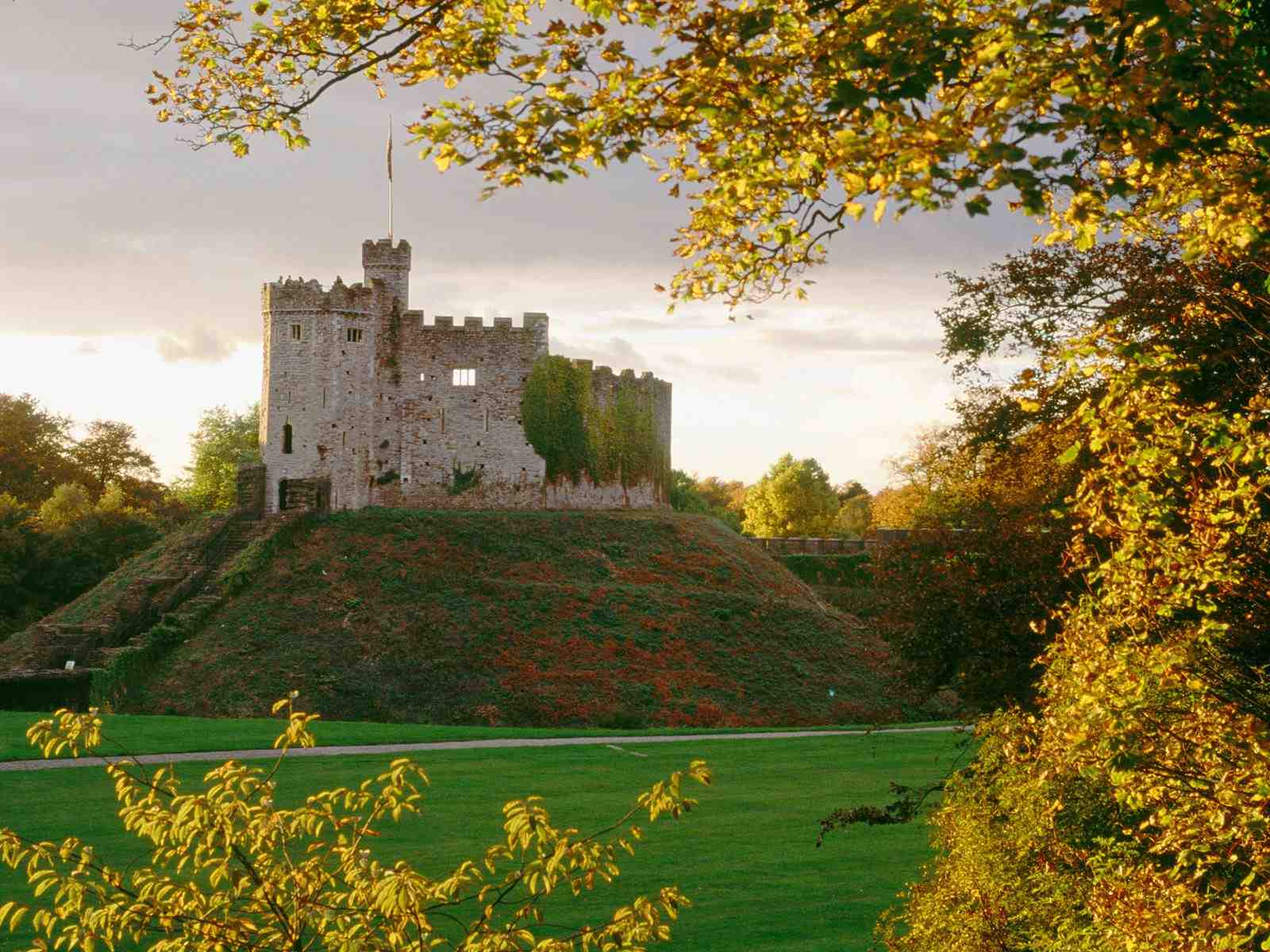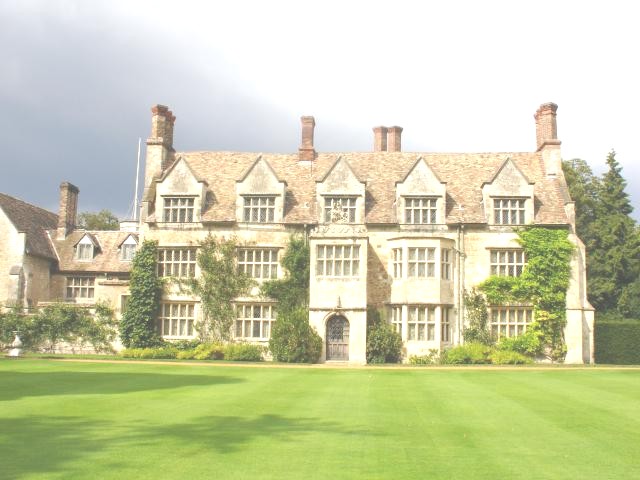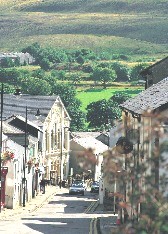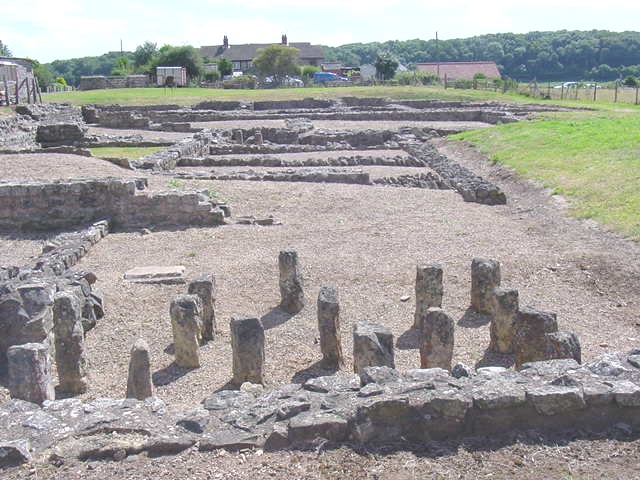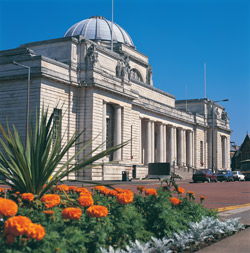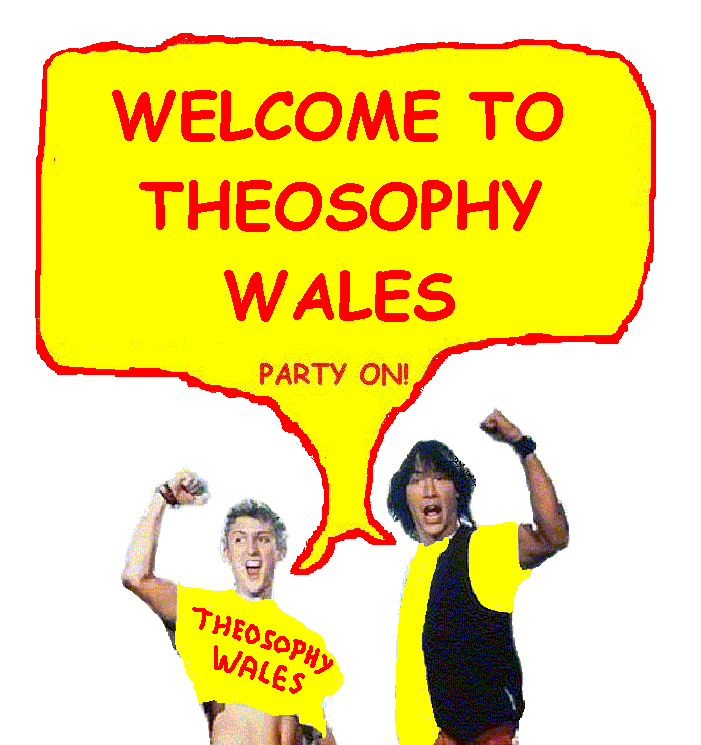

____________
THE
OF
THEOSOPHY
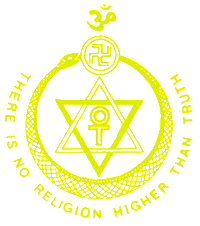
A Definitive Work on Theosophy
By
William Quan Judge
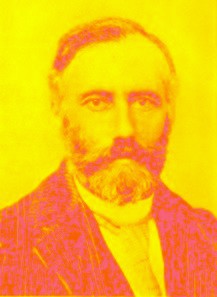
CHAPTER 8
Of
Reincarnation
How man has come to be the complex being that he is and why, are
questions that neither Science nor Religion makes conclusive answer to. This
immortal thinker having such vast powers and possibilities, all his because of
his intimate connection with every secret part of Nature from which he has been
built up,
stands at the top of an immense and silent evolution. He asks why Nature
exists, what the drama of life has for its aim, how that aim may be attained.
But Science and Religion both fail to give a reasonable reply. Science does not
pretend to be able to give the solution, saying that the examination of things
as they are is enough of a task; religion offers an explanation both illogical
and unmeaning and acceptable but to the bigot, as it requires us to consider
the whole of Nature as a mystery and to seek for the meaning and purpose of
life with all its sorrow in the pleasure of a God who cannot be found out. The
educated and enquiring mind knows that dogmatic religion can only give an
answer invented by man while it pretends to be from God.
What then is the universe for, and for what final purpose is man the
immortal thinker here in evolution? It is all for the experience and
emancipation of the soul, for the purpose of raising the entire mass of
manifested matter up to the
stature, nature, and dignity of conscious god-hood. The great aim is to
reach self-consciousness; not through a race or a tribe or some flavoured
nation, but by and through the perfecting, after transformation, of the whole
mass of matter as well as what we now call soul. Nothing is or is to be left
out.
The aim for present man is his initiation into complete knowledge, and
for the other kingdoms below him that they may be raised up gradually from
stage to stage to be in time initiated also. This is evolution carried to its
highest power; it is a magnificent prospect; it makes of man a god, and gives
to every part of nature the possibility of being one day the same; there is
strength and nobility in it, for by this no man is dwarfed and belittled, for
no one is so originally sinful that he cannot rise above all sin. Treated from
the materialistic position of
Science, evolution takes in but half of life; while the religious
conception of it is a mixture of nonsense and fear.
Present religions keep the element of fear, and at the same time imagine
that an Almighty being can think of no other earth but this and has to govern
this one very imperfectly. But the old
theosophical view makes the universe a vast, complete, and perfect
whole.
Now the moment we postulate a double evolution, physical and spiritual,
we have at the same time to admit that it can only be carried on by
reincarnation. This is, in fact, demonstrated by science. It is shown that the
matter of the earth and of all things physical upon it was at one time either
gaseous or molten;
that it cooled; that it altered; that from its alterations and
evolutions at last were produced all the great variety of things and beings.
This, on the physical plane, is transformation or change from one form to
another.
The total mass of matter is about the same as in the beginning of this
globe, with a very minute allowance for some star dust. Hence it must have been
changed over and over again, and thus been physically reformed and reimbodied.
Of course, to be strictly accurate, we cannot use the word reincarnation,
because "incarnate" refers to flesh. Let us say
"reimbodied," and then we see that both for matter and for man there
has been a constant change of form and this is, broadly speaking,
"reincarnation." As to the whole mass of matter, the doctrine is that
it will all be raised to man's estate when man has gone further on himself.
There is no residuum left after man's final salvation which in a
mysterious way is to be disposed of or done away with in some remote dust-heap
of nature. The true doctrine allows for nothing like that, and at the same time
is not afraid to give the true disposition of what would seem to be a residuum.
It is all worked up into other states, for as the philosophy declares there is
no inorganic matter whatever but that every atom is alive and has the germ of
self-consciousness, it must follow that one day it will all have been changed.
Thus what is now called human flesh is so much matter that one day was
wholly mineral, later on vegetable, and now refined into human atoms. At a
point of time very far from now the present vegetable matter will have been
raised to the animal stage and what we now use as our organic or fleshy matter
will have
changed by transformation through evolution into self-conscious
thinkers, and so on up the whole scale until the time shall come when what is
now known as mineral matter will have passed on to the human stage and out into
that of thinker.
Then at the coming on of another great period of evolution the mineral
matter of that time will be some which is now passing through its lower
transformations on other planets and in other systems of worlds. This is
perhaps a "fanciful" scheme for the men of the present day, who are
so accustomed to being called bad, sinful, weak, and utterly foolish from their
birth that they fear to believe the truth about themselves, but for the
disciples of the ancient theosophists it is not impossible or fanciful, but is
logical and vast. And no doubt it will one day be admitted by everyone when the
mind of the western race has broken away from Mosaic chronology and Mosaic
ideas of men and nature.
Therefore as to reincarnation and metempsychosis we say that they are first
to be applied to the whole cosmos and not alone to man. But as man is the most
interesting object to himself, we will consider in detail its application to
him.
This is the most ancient of doctrines and is believed in now by more
human minds than the number of those who do not hold it. The millions in the
East almost all accept it; it was taught by the Greeks; a large number of the
Chinese now believe it as their forefathers did before them; the Jews thought
it was true,
and it has not disappeared from their religion; and Jesus, who is called
the founder of Christianity, also believed and taught it. In the early
Christian church it was known and taught, and the very best of the fathers of
the church believed and promulgated it.
Christians should remember that Jesus was a Jew who thought his mission
was to Jews, for he says in St. Matthew, "I am not sent but unto the lost
sheep of the house of Israel." He must have well known the doctrines held
by them. They all believed in reincarnation. For them Moses, Adam, Noah, Seth,
and others had returned to earth, and at the time of Jesus it was currently
believed that the old prophet Elias was yet to return. So we find, first, that
Jesus never denied the doctrine, and on various occasions assented to it, as when
he said that John the Baptist was actually the Elias of old whom the people
were expecting. All
this can be seen by consulting St. Matthew in chapters xvii, xi, and
others.
In these it is very clear that Jesus is shown as approving the doctrine
of reincarnation. And following Jesus we find St. Paul, in Romans ix, speaking
of Esau and Jacob being actually in existence before they were born, and later
such great Christian fathers as Origen, Synesius, and others believing and
teaching
the theory. In Proverbs viii, 22, we have Solomon saying that when the
earth was made he was present, and that, long before he could have been born as
Solomon, his delights were in the habitable parts of the earth with the sons of
men. St. John the Revelator says in Revs. iii, 12, he was told in a vision
which refers to the voice of God or the voice of one speaking for God, that
whosoever should overcome would not be under the necessity of "going
out" any more, that is, would not need to be reincarnated. For five
hundred years after Jesus the
doctrine was taught in the church until the council of Constantinople.
Then a condemnation was passed upon a phase of the question which has
been regarded by many as against reincarnation, but if that condemnation goes
against the words of Jesus it is of no effect. It does go against him, and thus
the church is in the position of saying in effect that Jesus did not know
enough to curse, as it did, a doctrine known and taught in his day and which
was brought to his notice prominently and never condemned but in fact approved
by him.
Christianity is a Jewish religion, and this doctrine of reincarnation
belongs to it historically by succession from the Jews, and also by reason of
its having been taught by Jesus and the early fathers of the church. If there
be any truthful or logical way for the Christian church to get out of this
position -- excluding, of course, dogmas of the church -- the theosophist would
like to be shown it.
Indeed, the theosophist holds that whenever a professed Christian denies
the theory he thereby sets up his judgment against that of Jesus, who must have
known more about the matter than those who follow him. It is the anathema
hurled by the church council and the absence of the doctrine from the teaching
now that have damaged Christianity and made of all the Christian nations people
who pretend to be followers of Jesus and the law of love, but who really as
nations are followers of the Mosaic law of retaliation. For alone in
reincarnation is the answer to all the problems of life, and in it and Karma is
the force that will make men pursue in fact the ethics they have in theory. It
is the aim of the old philosophy to restore this doctrine to whatsoever
religion has lost it; and hence we call it the "lost chord of Christianity."
But who or what is it that reincarnates? It is not the body, for that
dies and disintegrates; and but few of us would like to be chained forever to
such bodies as we now have, admitted to be infected with disease except in the
case of the savage. It is not the astral body, for, as shown, that also has its
term and must go to pieces after the physical has gone. Nor is it the passions
and desires. They, to be sure, have a very long term, because they have the
power to reproduce themselves in each life so long as we do not eradicate them.
And reincarnation provides for that, since we are given by it many
opportunities of slowly, one by one, killing off the desires and passions which
mar the heavenly
picture of the spiritual man.
It has been shown how the passional part of us coalesces with the astral
after death and makes a seeming being that has a short life to live while it is
disintegrating. When the separation is complete between the body that has died,
the astral body, and the passions and desires -- life having begun to busy
itself with other forms -- the Higher Triad, Manas, Buddhi, and Atma, who are
the real man, immediately go into another state, and when that state, which is
called Devachan, or heaven, is over, they are attracted back to earth for
reincarnation. They are the immortal part of us; they, in fact, and no other
are we. This should be firmly grasped by the mind, for upon its clear
understanding
depends the comprehension of the entire doctrine.
What stands in the way of the modern western man's seeing this clearly
is the long training we have all had in materialistic science and materializing
religion, both of which have made the mere physical body too prominent. The one
has taught of matter alone and the other has preached the resurrection of the
body, a doctrine against common sense, fact, logic, and testimony. But there is
no doubt that the theory of the bodily resurrection has arisen from the
corruption of the older and true teaching. Resurrection is founded on what Job
says about seeing his redeemer in his flesh, and on St. Paul's remark that the
body was raised incorruptible. But Job was an Egyptian who spoke of seeing his
teacher or initiator, who was the redeemer, and Jesus and Paul referred to the
spiritual body only. Although reincarnation is the law of nature, the complete
trinity of
Atma-Buddhi-Manas does not yet fully incarnate in this race. They use
and occupy the body by means of the entrance of Manas, the lowest of the three,
and the other two shine upon it from above, constituting the God in Heaven.
This was symbolized in the old Jewish teaching about the Heavenly Man who
stands with his head in heaven and his feet in hell. That is, the head Atma and
Buddhi are yet in heaven, and the feet, Manas, walk in hell, which is the body
and physical life. For that reason man is not yet fully conscious, and
reincarnations are needed to at last complete the incarnation of the whole
trinity in the body.
When that has been accomplished the race will have become as gods, and
the godlike trinity being in full possession the entire mass of matter will be
perfected and raised up for the next step. This is the real meaning of
"the word made flesh." It was so grand a thing in the case of any
single person, such as Jesus or Buddha, as to be looked upon as a divine
incarnation. And out of this, too, comes the idea of the crucifixion, for Manas
is thus crucified for the purpose of raising up the thief to paradise.
It is because the trinity is not yet incarnate in the race that life has
so many mysteries, some of which are showing themselves from day to day in all
the various experiments made on and in man.
The physician knows not what life is nor why the body moves as it does,
because the spiritual portion is yet enshrouded in the clouds of heaven; the
scientist is wandering in the dark, confounded and confused by all that
hypnotism and other strange things bring before him, because the conscious man
is out of sight on the very top of the divine mountain, thus compelling the
learned to speak of the "subconscious mind," the "latent
personality," and the like; and the priest can give us no light at all
because he denies man's god-like nature, reduces all to the level of original sin,
and puts upon our conception of God the black mark of inability to control or
manage the creation without invention of expedients to cure supposed errors.
But this old truth solves the riddle and paints God and Nature in harmonious
colors.
Reincarnation does not mean that we go into animal forms after death, as
is believed by some Eastern peoples. "Once a man always a man" is the
saying in the Great Lodge. But it would not be too much punishment for some men
were it possible to condemn them to rebirth in brute bodies; however nature
does not go by sentiment but by law, and we, not being able to see all, cannot
say that the brutal man is brute all through his nature. And evolution having
brought Manas the Thinker and Immortal Person on to this plane, cannot send him
back to the brute which has not Manas.
By looking into two explanations for the literal acceptation by some
people in the East of those laws of Manu which seem to teach the transmigrating
into brutes, insects, and so on, we can see how the true student of this
doctrine will not fall into the same error.
The first is, that the various verses and books teaching such
transmigration have to do with the actual method of reincarnation, that is,
with the explanation of the actual physical processes which have to be
undergone by the Ego in passing from the unembodied to the embodied state, and
also with the roads, ways, or means of descent from the invisible to the
visible plane.
This has not yet been plainly explained in Theosophical books, because
on the one hand it is a delicate matter, and on the other the details would not
as yet be received even by Theosophists with credence, although one day they
will be. And as these details are not of the greatest importance they are not
now expounded.
But as we know that no human body is formed without the union of the
sexes, and that the germs for such production are locked up in the sexes and
must come from food which is taken into the body, it is obvious that foods have
something to do with the reincarnating of the Ego. Now if the road to
reincarnation leads through certain food and none other, it may be possible
that if the Ego gets entangled in food which will not lead to the germ of
physical reproduction, a punishment is indicated where Manu says that such and
such practices will lead to transmigration, which is then a
"hindrance." I throw this out so far for the benefit of certain
theosophists who read these and whose theories on this subject are now rather
vague and in some instances based on quite other
hypotheses.
The second explanation is, that inasmuch as nature intends us to use the
matter which comes into our body and astral body for the purpose, among others,
of benefiting the matter by the impress it gets from association with the human
Ego, if we use it so as to give it only a brutal impression it must fly back to
the animal kingdom to be absorbed there instead of being refined and kept on
the human plane. And as all the matter which the human Ego gathered to it
retains the stamp or photographic impression of the human being, the matter
transmigrates to the lower level when given an animal impress by the Ego. This
actual fact in the great chemical laboratory of nature could easily be
misconstrued by the ignorant. But the present-day students know that once Manas
the Thinker has arrived on the scene he does not return to baser forms; first,
because he does not wish to, and second, because he cannot. For just as the
blood in the body is prevented by valves from rushing back and engorging the
heart, so in this greater system of universal circulation the door is shut
behind the Thinker and prevents his retrocession. Reincarnation as a doctrine
applying to the real man does not teach transmigration into kingdoms of nature
below the human.
ARGUMENTS
SUPPORTING REINCARNATION
DIFFERENTIATION OF SPECIES MISSING LINKS
PSYCHIC
LAWS, FORCES, AND
PHENOMENA
PSYCHIC
PHENOMENA AND SPIRITUALISM
______________________
THE
OF
THEOSOPHY

Find out more about
Theosophy with these links
The Cardiff Theosophical Society Website
The National
Wales Theosophy Website
Theosophy
Wales Youtube Channel
Ten Benefits of Studying the Blavatskyan
Theosophical Teachings
Studying
the Blavatskyan Theosophical teachings offers numerous benefits that can
greatly enrich one's understanding of spirituality, philosophy, and the nature
of reality. Theosophy, as defined by the
writings of Helena Petrovna Blavatsky, has had a profound impact on the
spiritual and philosophical landscape of the modern world. Blavatsky's teachings
draw from a wide range of religious and philosophical traditions, including
Hinduism, Buddhism, and Western esotericism, and present a comprehensive
worldview that addresses fundamental questions about existence, consciousness,
and the cosmos.
Here
are ten benefits of studying the Blavatskyan Theosophical Teachings
1.
Exploration of Esoteric Wisdom
One
of the primary benefits of studying the Blavatskyan Theosophical teachings is
the opportunity to explore esoteric wisdom that is often not readily accessible
in mainstream religious or philosophical traditions. Blavatsky's writings delve
into the esoteric teachings of ancient cultures and mystery schools, shedding
light on profound spiritual truths that have been passed down through the ages.
By delving into these esoteric teachings, students of Theosophy can gain
insights into the nature of consciousness, the structure of the cosmos, and the
evolution of the soul or immortal self.
2.
Synthesis of Eastern and Western Philosophy
Blavatsky's
Theosophical teachings synthesize elements of Eastern and Western philosophy,
offering a comprehensive framework that integrates concepts from diverse
cultural and religious traditions. This synthesis provides students with a
broader perspective on philosophical and spiritual thought, allowing them to
see the underlying unity of seemingly disparate belief systems. By studying
Theosophy, individuals can gain a deeper appreciation for the universal
principles that underlie all wisdom traditions, fostering a sense of unity and
interconnectedness with the world's spiritual heritage.
3.
Understanding of Universal Brotherhood
Central
to Blavatsky's Theosophical teachings is the principle of universal
brotherhood, which emphasizes the essential unity of all beings and the interconnectedness
of life. By studying Theosophy, individuals can develop a profound
understanding of the interconnected nature of existence, recognizing that all
living beings are fundamentally linked and that compassion and empathy are
essential for the evolution of humanity. This understanding can lead to a
greater sense of empathy, kindness, and social responsibility, fostering a more
harmonious and compassionate society.
4.
Insight into the Nature of Reality
The
Blavatskyan Theosophical teachings offer profound insights into the nature of
reality, consciousness, and the unseen dimensions of existence. Through the
study of Theosophy, individuals can explore concepts such as the
multi-dimensional nature of the universe, the existence of subtle energy realms,
and the interconnectedness of the material and spiritual planes. This
exploration can lead to a deeper understanding of the nature of reality beyond
the limitations of the physical senses, opening up new vistas of perception and
understanding.
5.
Personal Spiritual Growth
Studying
the Theosophical teachings can be a transformative journey that facilitates
personal spiritual growth and self-discovery. Blavatsky's writings offer
practical guidance for inner development, including meditation practices, ethical
principles, and the cultivation of spiritual virtues. By applying these
teachings to their lives, individuals can experience profound personal
transformation, leading to greater self-awareness, inner peace, and a sense of
purpose and meaning.
6.
Ethical and Moral Guidance
The
Theosophical teachings provide a comprehensive ethical and moral framework that
can guide individuals in their personal and social interactions. Blavatsky
emphasizes the importance of ethical conduct, altruism, and the pursuit of
wisdom, offering practical guidance for leading a virtuous and meaningful life.
By studying Theosophy, individuals can gain clarity on moral issues, cultivate
a sense of ethical responsibility, and contribute to the greater good of
humanity.
7.
Appreciation of Comparative Religion
The
study of Theosophy encourages an appreciation of comparative religion and the
underlying unity of religious and spiritual traditions. Blavatsky's writings
explore the common threads that run through the world's religions, highlighting
universal spiritual principles that transcend cultural and historical
boundaries. By gaining a deeper understanding of comparative religion through
Theosophy, individuals can develop a more inclusive and pluralistic
perspective, fostering interfaith harmony and mutual respect.
8.
Intellectual Stimulation
The
Theosophical teachings offer a rich and intellectually stimulating framework
for exploring profound philosophical and metaphysical concepts. Blavatsky's writings
encompass a wide range of subjects, including cosmology, metaphysics, ancient
wisdom, and the evolution of consciousness, providing ample material for
intellectual inquiry and contemplation. By engaging with these teachings,
individuals can expand their intellectual horizons, develop critical thinking
skills, and gain a deeper understanding of the fundamental questions that have
intrigued philosophers and mystics throughout history.
9.
Healing and Reconciliation
The
Theosophical teachings offer insights into the nature of healing and
reconciliation, both on a personal and collective level. Blavatsky's writings
delve into the esoteric principles of healing, the nature of disease, and the
interconnectedness of mind, body, and spirit. By studying Theosophy,
individuals can gain a deeper understanding of holistic healing modalities, the
power of the mind in influencing health, and the potential for spiritual
transformation through the healing process. Furthermore, the Theosophical
emphasis on universal brotherhood and compassion can contribute to the
reconciliation of divisions and conflicts within society, fostering a more
harmonious and peaceful world.
10.
Contribution to Global Transformation
Finally,
studying the Blavatskyan Theosophical teachings can empower individuals to
contribute to the ongoing global transformation towards a more enlightened and
compassionate world. Blavatsky's vision of a spiritually awakened humanity,
working towards the betterment of all beings, inspires individuals to engage in
positive action and service to humanity. By embodying the principles of
Theosophy in their lives, individuals can become agents of positive change,
working towards the realization of a more just, peaceful, and sustainable
world.
In
summary, the study of the Blavatskyan Theosophical teachings offers a wide
range of benefits, ranging from personal spiritual growth to the potential for
global transformation. By delving into the esoteric wisdom, ethical principles,
and philosophical insights of Theosophy, individuals can expand their
understanding of the nature of reality, cultivate compassion and empathy, and
contribute to the evolution of humanity towards a more harmonious and
enlightened future. As the Theosophical teachings continue to inspire and guide
seekers of truth and wisdom, their profound impact on individuals and society
is likely to endure for generations to come.
If you run a Theosophy Group, please feel free
to use any of the material on this site
The Most Basic Theosophy
Website in the Universe
A quick overview of Theosophy
and the Theosophical Society
If you run a Theosophy Group you
can use this as an introductory handout.
Theosophy Cardiff’s Instant Guide
One liners and quick explanations
H P Blavatsky is
usually the only
Theosophist that
most people have ever
heard of. Let’s
put that right
The Voice of the Silence Website
An Independent Theosophical Republic
Links to Free Online Theosophy
Study Resources; Courses, Writings,
The main criteria
for the inclusion of
links on this
site is that they have some
relationship
(however tenuous) to Theosophy
and are
lightweight, amusing or entertaining.
Topics include
Quantum Theory and Socks,
Dick Dastardly and Legendary Blues Singers.
A selection of articles
on Reincarnation
Provided in
response to the large
number of
enquiries we receive at
Cardiff
Theosophical Society on this subject
The Voice of the Silence Website
This is for everyone, you don’t have to live
in Wales to make good use of this Website
No Aardvarks were harmed in the
The Spiritual Home of Urban Theosophy
The Earth Base for Evolutionary Theosophy
Theosophy Birmingham (England)
The Birmingham Annie Besant Lodge
Theosophy Cardiff has links with the
_______________________
Your Own
Theosophy Group Starts Here
A Guide to
starting your own
Theosophy Group
& of course
you don’t need to live in Wales
to take advantage
of this guide
__________________
The Theosophy Cardiff
Glastonbury Pages
The Theosophy Cardiff Guide to
The Theosophy Cardiff Guide to
The Theosophy Cardiff Guide to
The Terraced Maze of Glastonbury Tor
Glastonbury and
Joseph of Arimathea
The Grave of King Arthur & Guinevere
Views of Glastonbury High Street
The Theosophy Cardiff Guide to
__________________
Camberley,
Surrey, England GU15 2LF
Concerns about the
fate of the wildlife as
Tekels Park is to
be Sold to a Developer
Concerns are raised
about the fate of the
wildlife as The Spiritual
Retreat,
Tekels Park in
Camberley, Surrey,
England is to be
sold to a developer.
Tekels Park is a 50
acre woodland park,
purchased for the Adyar
Theosophical
It doesn’t require a Diploma in
Finance
and even someone with a Diploma
in
Astral Travel will know that
this is a
bad time economically to sell Tekels Park
In addition to
concern about the park,
many are worried about the
future
of the Tekels Park
Deer as they
Confusion as the Theoversity moves
out of
Tekels Park to Southampton,
Glastonbury &
Chorley in Lancashire while the
leadership claim
that the Theosophical Society will
carry on using
Tekels Park despite its sale to a developer
Anyone planning a
“Spiritual” stay at the
Tekels Park Guest
House should be aware of the sale.
Future of Tekels Park Badgers in Doubt
Party On! Tekels Park Theosophy NOT
Tekels Park & the Loch Ness Monster
A Satirical view of
the sale of Tekels Park
in Camberley,
Surrey to a developer
The Toff’s Guide to the Sale of Tekels Park
What the men in top
hats have to
say about the sale
of Tekels Park
____________________
A B C D EFG H IJ KL M N OP QR S T UV WXYZ
Complete Theosophical Glossary in Plain Text Format
1.22MB
Theosophy Cardiff Nirvana Pages
Quick Explanations with Links to More Detailed Info
What is Theosophy ? Theosophy Defined (More Detail)
Three Fundamental Propositions Key Concepts of Theosophy
Cosmogenesis Anthropogenesis Root Races
Ascended Masters After Death States
The Seven Principles of Man Karma
Reincarnation Helena Petrovna Blavatsky
Colonel Henry Steel Olcott William Quan Judge
The Start of the Theosophical
Society
History of the Theosophical
Society
Theosophical Society Presidents
History of the Theosophical
Society in Wales
The Three Objectives of the
Theosophical Society
Explanation of the Theosophical
Society Emblem
The Theosophical Order of
Service (TOS)
Glossaries of Theosophical Terms
by
Annie Besant
THE BUDDHIC AND
NIRVANIC PLANES
______________________
Annie Besant Visits Cardiff 1924
An Outstanding
Introduction to Theosophy
By a student of
Katherine Tingley
Elementary Theosophy Who is the Man? Body and Soul
Body, Soul and Spirit Reincarnation Karma
Reincarnation
This guide has been included in response
to the number of enquiries we receive on this
subject at Cardiff
Theosophical Society
From A Textbook
of Theosophy By C W Leadbeater
How We Remember our Past Lives
Life after Death & Reincarnation
The Slaughter of the
a great demand by the public for lectures on
Reincarnation
What Theosophy Is From the Absolute to Man
The Formation of a Solar System The Evolution of Life
The Constitution of Man After Death Reincarnation
The Purpose of Life The Planetary Chains
The Result of Theosophical Study
Quotes from the Writings of
Helena Petrovna Blavatsky
The Secret Doctrine , Volume 2, Page 100
It is only by the attractive force of the contrasts
that the two opposites — Spirit and Matter — can be cemented together on
Earth, and, smelted in the fire of self-conscious experience and suffering, find
themselves wedded in Eternity.
The Secret Doctrine , Volume 2, Page 108
It is the motive, and the motive alone, which makes
any exercise of power become black, malignant, or white, beneficent Magic. It is
impossible to employ spiritual forces if there is the slightest tinge of
selfishness remaining in the operator .... The powers and forces of animal
nature can equally be used by the selfish and revengeful, as by the unselfish
and the all-forgiving; the powers and forces of spirit lend themselves only to
the perfectly pure in heart — and this is Divine Magic.
Isis Unveiled, Volume 1, Page 36
The Secret Doctrine , Volume 3, Page 14
Even ignorance is better than
Head-learning with no Soul-wisdom to illuminate and guide it.
The Voice of
the Silence, Page 43
Annotation - The Path, May, 1888
The Secret Doctrine , Proem [Volume 1], Page 35
Isis Unveiled, Volume 1, Page 210
The Secret Doctrine , Volume 1, Page 134
incarnation of
his God; and when the sense of personal responsibility will be so
Isis Unveiled,
Volume 2, Page 374
It is the
motive, and the motive alone, which makes any exercise of power become
The Secret Doctrine , Volume 2, Page 498
Isis Unveiled, Volume 1, Page 36
From strength to
strength, from the beauty and perfection of one plane to the
greater beauty
and perfection of another, with accessions of new glory, of fresh
knowledge and
power in each cycle, such is the destiny of every Ego, which thus
becomes its own
saviour in each world and incarnation.
The Key to
Theosophy, Page 105
The Secret Doctrine , Volume 1, Page 69
The mind
receives indelible impressions even from chance acquaintance or persons
Isis Unveiled,
Volume 1, Page 311
The Key to Theosophy, Page 228
An Outline of Theosophy
Charles Webster Leadbeater
Theosophy - What it is How is it Known? The Method of Observation
General Principles The Three Great Truths The Deity
Advantage Gained from this
Knowledge The Divine Scheme
The Constitution of Man The True Man Reincarnation
The Wider Outlook Death Man’s Past and Future
Cause and Effect What Theosophy does for us
Try these if you are looking for a local
Theosophy Group or Centre
UK Listing of Theosophical Groups
Please tell us about your UK Theosophy Group
___________________
into categories
and presented according to relevance of website.
Web Directory
- Add Link - Submit Article - Online Store - Forum
Cardiff, Wales, UK, CF24 – 1DL
_________________
Wales Picture Gallery
The Great Orme
llandudno
Promenade
Great Orme
Tramway
New Radnor
Blaenavon
Ironworks
Llandrindod
Wells
Cardiff
Theosophical Society in Wales
Cardiff, Wales, UK. CF24 – 1DL
Presteign
Railway
Caerwent Roman Ruins
Denbigh
Nefyn
Penisarwaen
Cardiff
Theosophical Society in Wales
Cardiff, Wales, UK. CF24 – 1DL


